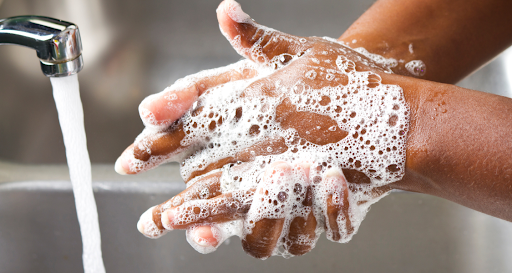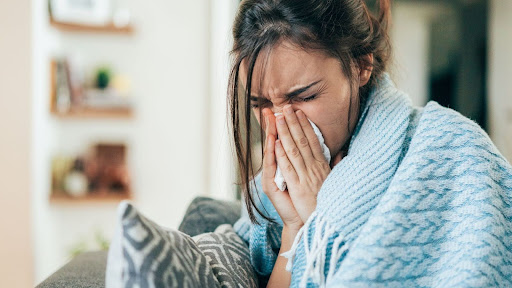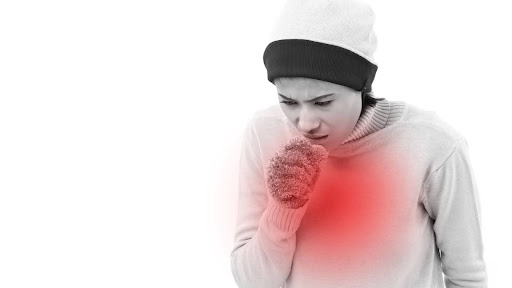Essential Foods to Eat During Malaria: A Complete Guide
4 min read
By DocGenie , Published on - 27 November 2023Why Is Nutrition Important for Malaria Patients?
Malaria weakens the body, leading to fever, chills, fatigue, and a weakened immune response. A well-balanced diet for malaria patients helps:- Boost immunity to fight the infection
- Restore lost energy
- Prevent complications like anemia and dehydration
- Speed up recovery
Best Foods to Eat During Malaria
The following foods are beneficial for malaria patients:- Hydrating FluidsMalaria often leads to dehydration due to high fever and sweating. Keeping the body hydrated is essential. Recommended fluids include:
- Coconut water Fresh fruit juices (without added sugar)
- Lemon water
- Electrolyte-rich solutions like ORS (Oral Rehydration Solution)
- Herbal teas (ginger, tulsi, and chamomile)
- Warm soups (vegetable broth, chicken soup)
- Easily Digestible CarbohydratesMalaria weakens digestion, so light and easily digestible carbohydrates are crucial. Good options include:
- Boiled rice
- Soft cooked oats
- Boiled potatoes
- Whole wheat bread
- Steamed idli or plain khichdi
- Protein-Rich FoodsProtein helps in tissue repair and strengthens the immune system. Ideal sources are:
- Boiled or scrambled eggs
- Lentils (moong dal, masoor dal)
- Cottage cheese (paneer)
- Soft cooked chicken or fish (if digestion allows)
- Yogurt (probiotic-rich for gut health)
- Vitamin and Mineral-Rich Fruits and Vegetables Fruits and vegetables provide essential nutrients to fight infection. Focus on:
- Oranges, papaya, and pomegranate (Vitamin C for immunity)
- Bananas (rich in potassium to prevent dehydration)
- Carrots, sweet potatoes, and pumpkin (Vitamin A for immunity)
- Leafy greens like spinach (iron to combat malaria-induced anemia)
- Tomatoes and cucumbers (hydration and antioxidants)
- Healthy FatsGood fats support overall health and provide necessary energy. Include:
- Coconut oil
- Ghee (in moderation)
- Nuts like almonds and walnuts
- Flaxseeds and chia seeds (Omega-3 for inflammation control)
Malaria Foods to Avoid
Certain foods can worsen symptoms and should be avoided:- Processed and Junk Foods
- Fried foods (chips, fries, deep-fried snacks)
- Sugary foods (cakes, candies, soft drinks)
- Packaged and canned foods (preservatives can be harmful)
- Spicy and Oily Foods
- Spicy curries and pickles
- Heavy, greasy foods (deep-fried meats, fast food)
- Excessive masalas (can worsen digestion issues)
- Caffeinated and Carbonated Drinks
- Coffee, energy drinks, and sodas can cause dehydration.
- Alcohol should be strictly avoided as it weakens the immune system.
- High-Fiber and Gas-Producing Foods
- Beans, cabbage, cauliflower (can cause bloating)
- Whole pulses (difficult to digest when the body is weak)
- Excessive raw vegetables (can strain digestion)
Malaria Diet Chart (Sample Meal Plan)
A well-planned malaria diet chart can help patients recover efficiently. Below is a sample meal plan:| Time of Day | Food/Drink | Benefits |
|---|---|---|
| Morning | Coconut Water/Lemon Water | Hydration, electrolyte replenishment |
| Oats with Banana & Honey | Energy, easy digestion, potassium | |
| Mid-Morning Snack | Orange/Pomegranate Juice | Vitamin C for immunity |
| Soaked Almonds | Healthy fats, energy | |
| Lunch | Boiled Rice with Moong Dal | Light, nutritious, easy to digest |
| Steamed Vegetables | Vitamins and minerals | |
| Plain Yogurt | Probiotics for gut health | |
| Evening Snack | Herbal Tea with Walnuts | Antioxidants, relaxation |
| Whole Wheat Toast with Honey | Sustained energy | |
| Dinner | Soft Khichdi with Ghee | Easy to digest, provides essential fats |
| Boiled Chicken/Paneer (Lightly Cooked) | Protein for tissue repair | |
| Vegetable Soup | Hydration, vitamins | |
| Before Bed | Warm Turmeric Milk | Boosts immunity, promotes sleep |
Morning
- A glass of coconut water or warm lemon water
- A bowl of oats with mashed banana and honey
Mid-Morning Snack
- Fresh orange or pomegranate juice
- A handful of soaked almonds
Lunch
- Boiled rice with moong dal (light and nutritious)
- Steamed vegetables (carrots, spinach, pumpkin)
- Plain yogurt
Evening Snack
- Herbal tea with a handful of walnuts
- Whole wheat toast with honey
Dinner
- Soft khichdi with ghee
- Boiled chicken or paneer (lightly cooked)
- A bowl of vegetable soup
Before Bed
- Warm turmeric milk (boosts immunity and promotes sleep)
Additional Tips for Recovery
- Rest is key – Malaria causes extreme fatigue, so adequate sleep is necessary.
- Stay hydrated – Aim for at least 2-3 liters of fluids daily.
- Maintain hygiene – Wash hands before meals to prevent infections.
- Follow medical advice – Complete your prescribed medication course.
- Monitor symptoms – If fever persists, consult a doctor immediately
Final Thoughts
A well-balanced diet for malaria patients plays a crucial role in a faster and smoother recovery. Consuming the right foods while avoiding harmful ones can boost immunity, maintain energy, and prevent complications.
If you or a loved one is battling malaria, following a structured meal plan and staying hydrated can significantly improve health outcomes. For professional health guidance and lab tests, consider DocGenie’s expert medical consultations and diagnostic services.
Author Details

Dr.Rachna Kucheria
MD (Community Medicine) AIIMS New Delhi
MD (Family Medicine) USC California
Obesity Medicine Certification The American Board of Obesity Medicine
30+ Years of experience


